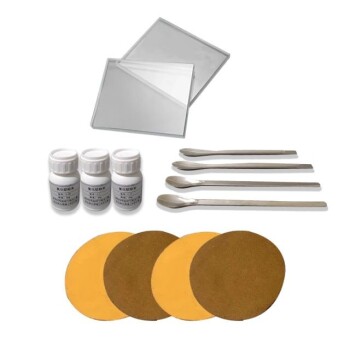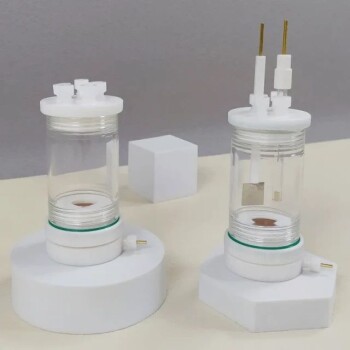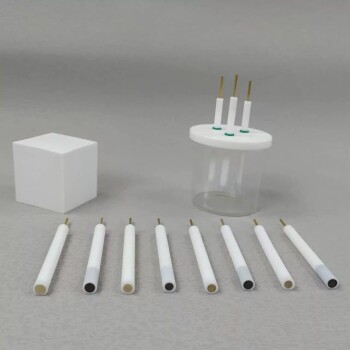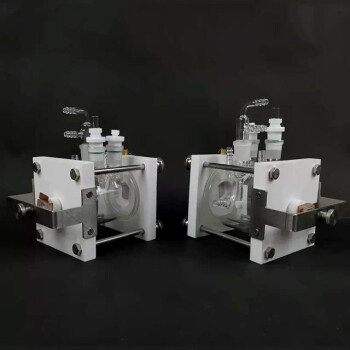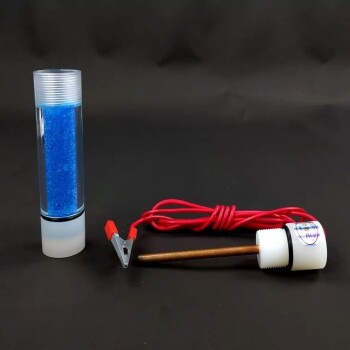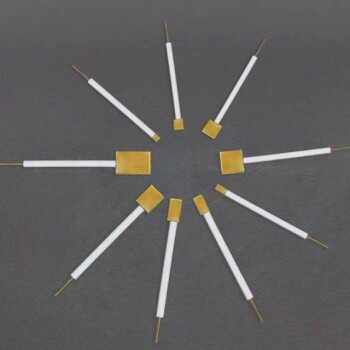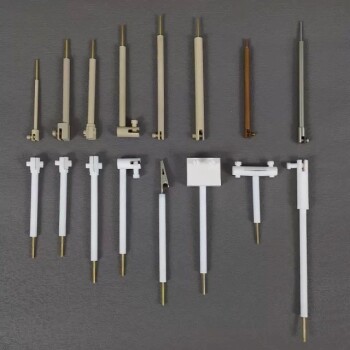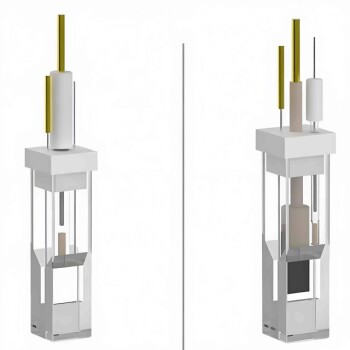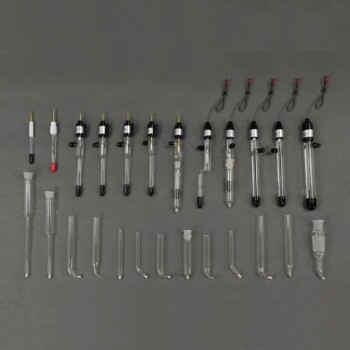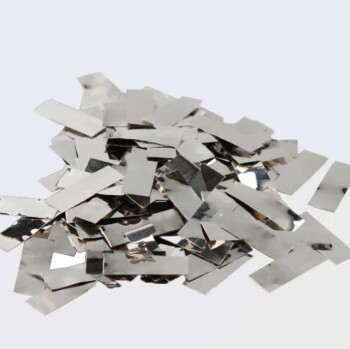Introduction to Electrochemical Electrodes
Electrochemical electrodes are devices that are used to transfer electrons between an electronic conductor and an ionic conductor. These electrodes are essential components of many electrochemical systems and are used in a wide range of applications, including batteries, fuel cells, and corrosion monitoring. Electrodes can be made from a variety of materials, including metals, metal oxides, and polymers, and the choice of electrode material can have a significant impact on the performance of the electrochemical system. Understanding the properties of different electrode materials is important for choosing the right electrode for a given application.
Table of Contents
Electrode Selection Considerations
When it comes to selecting the right electrochemical electrode, several factors need to be considered to ensure reliable and accurate results. In this section, we'll go over some of the most important considerations.

Type of Electrode
There are three main types of electrodes: reference, working, and counter electrodes. Reference electrodes maintain a stable voltage, while working electrodes are where the electrochemical reaction takes place, and counter electrodes complete the electrical circuit. The type of electrode you choose will depend on the specific electrochemical reaction being studied.
Electrode Material
The electrode material is crucial, as it can affect the sensitivity, accuracy, and stability of the measurement. Common electrode materials include platinum, gold, and carbon. The choice of material will depend on several factors, such as the type of electrochemical reaction, the sample matrix, and the required electrode properties.
Sample Matrix
The sample matrix, such as the pH, temperature, and the presence of interfering substances, can also impact electrode selection. It's essential to match the electrode to the sample matrix to ensure reliable and accurate results. For example, if the sample matrix is acidic, a platinum electrode may be a better choice than a gold electrode.
Performance
The performance of the electrode material needs to be evaluated based on the reaction's outcome, such as yields, selectivity, and current efficiencies. Different materials can give unique outcomes, which can determine the selectivity for synthetic electrochemical reactions. In addition, poor reproducibility is a major challenge that accompanies the use of electrochemistry in organic synthesis, and differences in the electrode material, grade, and source all contribute to this problem.
Cost and Availability
The cost and availability of the electrode material are also important considerations, especially for industrial applications. In some cases, small gains in current efficiency may not be the highest priority for reaction optimization, as the cost of the electrode material and the man-hours required to optimize a process must be balanced against the costs of the reagents and the value of the product.
In summary, selecting the right electrode for electrochemical experiments requires careful consideration of several factors, including the type of electrode, electrode material, sample matrix, performance, cost, and availability. By choosing the right electrode, laboratory professionals can ensure high-quality data and reliable and accurate results.
Electrode Material Properties to Consider
When it comes to selecting the right electrode material, there are several properties that you should consider. These properties will help you to achieve accurate and reliable results in your electrochemical experiments.
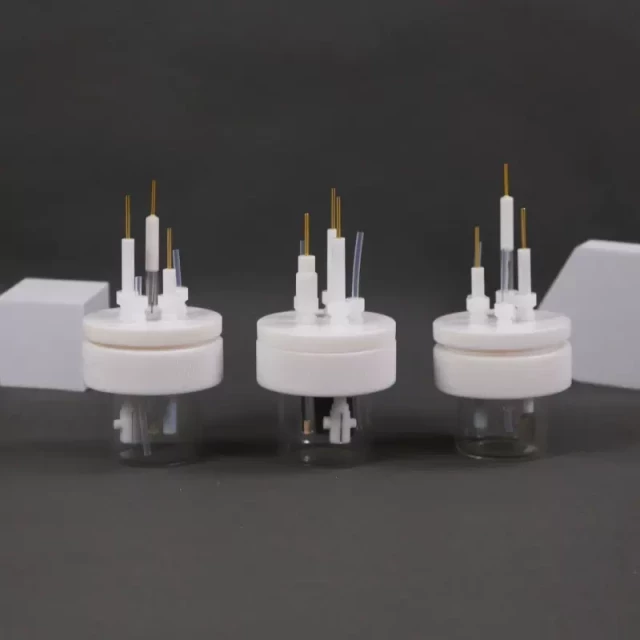
Corrosion Resistance, Stability, and Selectivity
The properties of corrosion resistance, stability, and selectivity are critical when selecting an electrode material. Platinum electrodes are suitable for aqueous solutions due to their excellent corrosion resistance, while silver/silver chloride electrodes are best for measuring pH changes in acidic solutions. It is also important to consider the sensitivity of the material, as some materials are more susceptible to interference or signal noise.
Surface Area and Geometry
The surface area and geometry of the electrode are crucial in determining its sensitivity and response time. A larger surface area electrode provides more accurate measurements, while a smaller surface area electrode has a faster response time. The choice of surface area and geometry should depend on the specific requirements of the application.
Conductivity
The conductivity of the electrode material is an essential factor to consider. Any conducting material such as metals, semiconductors, graphite, or conductive polymers can be used as an electrode. Often, electrodes consist of a combination of materials, each with a specific task.
Efficiency
The physical properties of the electrodes play an important role in determining the efficiency of electrochemical cells. The self-discharge time, the discharge voltage, and the cycle performance are all important quantities. The electrical resistivity, specific heat capacity, electrode potential, and hardness are important properties of the electrodes.
Surface Effects
The surface topology of the electrode is significant in determining the efficiency of an electrode. The efficiency of the electrode can be reduced due to contact resistance. To create an efficient electrode, it is essential to design it to minimize the contact resistance.
Reactivity Aspects
The mechanism for electron transfer at an electrode occurs between two limiting scenarios. In one scenario, the electrode surface is intimately involved in the mechanism of electron transfer and acts as a catalyst in the reaction. In the second scenario, the electrode is entirely inert and provides a source or sink of electrons that are transferred in an outer-sphere manner between the substrate and electrode. The identity of the products formed, and the mechanism and kinetics of their formation should be independent of the material.
In conclusion, when selecting the right electrode material, it is crucial to consider its properties, such as corrosion resistance, stability, and selectivity, surface area and geometry, conductivity, efficiency, surface effects, and reactivity aspects. By understanding the properties of various materials and considering your application's specific requirements, you can ensure that you choose the electrode that best suits your needs.
Types of Reference Electrodes and Their Features
Introduction
Choosing the right electrode is crucial for conducting accurate electrochemical experiments. One of the most important types of electrodes in electrochemistry are reference electrodes. These electrodes are used to measure the potential of the working electrode and are critical in determining the accuracy of electrochemical experiments. In this article, we will discuss the different types of reference electrodes available and their unique features that make them suitable for different applications.
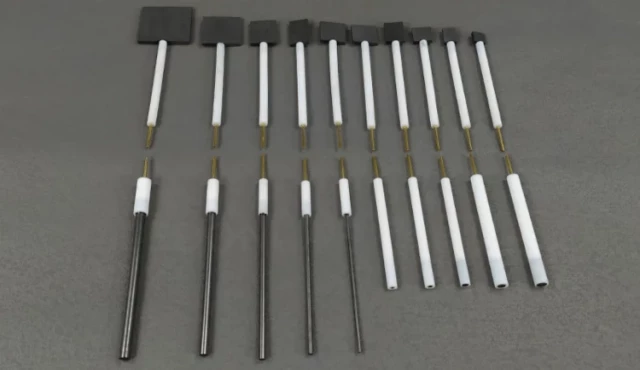
Silver/Silver Chloride Electrode
The silver/silver chloride electrode is a popular reference electrode that is widely used in biological and environmental analyses due to its stability and reproducibility. It is easy to use and requires minimal maintenance. Its potential is determined by the electrolyte inside the electrode and the reference element used, which is silver/silver chloride.
Calomel Electrode
Another popular reference electrode is the calomel electrode, which is commonly used in analytical chemistry due to its low cost and ease of use. It is highly accurate but contains mercury which makes it unsuitable for use in certain applications such as food, beverage, or environmental studies. Its disposal must also be carefully controlled due to the environmental implications.
Saturated Calomel Electrode
The saturated calomel electrode is a highly accurate reference electrode but requires more specialized equipment and maintenance. Its temperature range is limited to 50°C, so if the application requires use at a higher temperature, an alternative electrode is required.
Hydrogen Electrode
The hydrogen electrode is another highly accurate reference electrode but requires specialized equipment and maintenance. It is not commonly used due to its complexity and the need for a constant supply of hydrogen gas.
Double Junction Electrodes
Double junction electrodes have a lower chamber containing an electrolyte that differs from the electrolyte in the top reference chamber. This is important because the lower chamber electrolyte comes into contact with the sample via the junction, and if there is an interaction between the electrolyte and sample, it can cause the junction to block and give erratic readings.
Considerations When Selecting a Reference Electrode
When selecting a reference electrode, it is important to consider factors such as the type of experiment, the required accuracy, and the compatibility with other electrode materials. The electrode should be compatible with the sample being measured, provide a stable potential for accurate measurement, and have a fast response time to ensure analytical process efficiency. Temperature considerations and the chemical composition of the sample should also be taken into account.
Conclusion
Choosing the right reference electrode is crucial for conducting accurate electrochemical experiments. Each type of reference electrode has unique features that make it suitable for different applications. By carefully selecting the right reference electrode for your electrochemical experiment, you can ensure accurate and reliable results.
Importance of Choosing the Right Electrode Material
Electrochemical electrodes are fundamental components in laboratory equipment used to measure and analyze various chemical reactions. The selection of electrode material is a critical factor in ensuring accurate results and avoiding errors in analysis. The electrode material can influence the sensitivity, selectivity, and stability of the measurement.
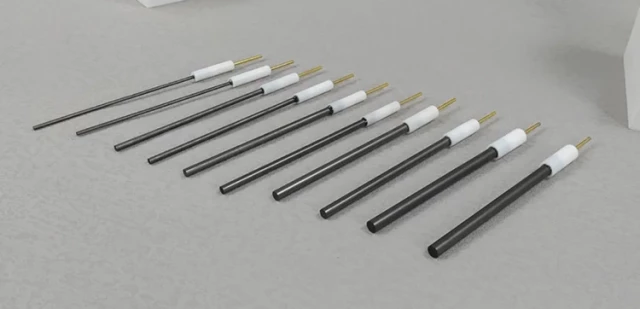
Factors to Consider when Choosing Electrode Materials
The choice of electrode material can depend on the type of application. It is important to consider the nature of the sample being analyzed, the expected range of measurements, and the potential interference from other substances when selecting the appropriate electrode material for the experiment. Some electrode materials are better suited for acidic solutions, while others are more appropriate for alkaline solutions.
Effect of Electrode Material on Durability and Longevity
The choice of electrode material can also affect the durability and longevity of the electrode. The durability and longevity of the electrode are important factors in minimizing the need for frequent replacement and maintenance. Some electrode materials may be more susceptible to corrosion or degradation, which can affect the reliability of the measurement.
Common Electrode Materials
Common electrode materials include graphite, platinum, gold, silver, and various metals, each with its unique properties and suitability for specific applications. For example, platinum electrodes are commonly used in electrochemical experiments due to their excellent conductivity and stability in various chemical environments.
Conclusion
In summary, selecting the right electrode material is critical for achieving accurate and reliable results in electrochemical analysis and is a key consideration when using laboratory equipment. The choice of electrode material can affect the sensitivity, selectivity, and stability of the measurement, as well as the durability and longevity of the electrode. Therefore, it is important to consider the nature of the sample being analyzed, the expected range of measurements, and the potential interference from other substances when choosing the appropriate electrode material.
Related Products
- Electrode Polishing Material for Electrochemical Experiments
- Multifunctional Electrolytic Electrochemical Cell Water Bath Single Layer Double Layer
- Electrolytic Electrochemical Cell for Coating Evaluation
- Metal Disc Electrode Electrochemical Electrode
- Flat Corrosion Electrolytic Electrochemical Cell

